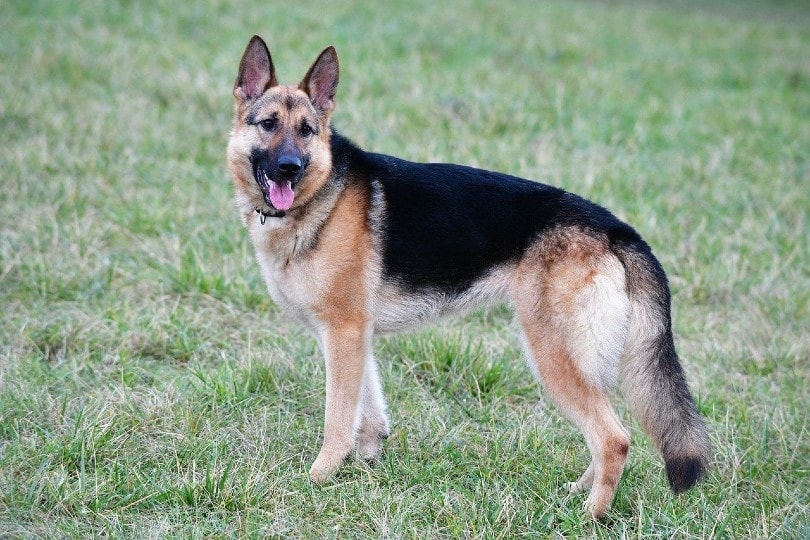Boxweiler (Rottweiler & Boxer Mix): Info, Pictures, Characteristics & Facts

Updated on

Height:
21–27 inches
Weight:
70–100 pounds
Lifespan:
8–13 years
Colors:
White, fawn, brown, brindle, black
Suitable for:
Active families looking for an affectionate watchdog
Temperament:
Intelligent, high energy, loyal & loving, easy to train
The Boxweiler is a cross between the Rottweiler and the Boxer. These dogs are loyal and loving dogs that are high energy and very intelligent. They will make excellent family pets, but because of their large size, they may do better with older children and adults.
They are short-haired dogs with a range of colors usually found in the Rottweiler and Boxer breeds. They can range from multicolor to a solid color of black, fawn, brown, white, and brindle.
Boxweilers are bred from working dogs and flourish when active and make excellent watchdogs.
Boxweiler Puppies
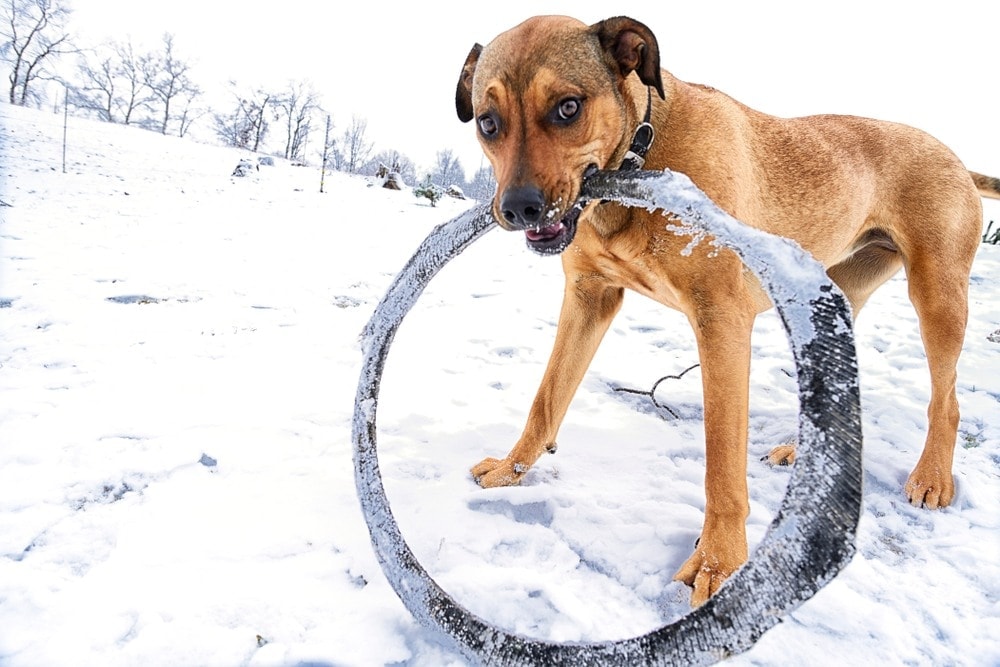
The Boxweiler is a very active, high-energy dog whose intelligence allows for relatively easy training as long as it is done with consistency and patience. They enjoy a good cuddle as much as running after a ball and playing fetch.
They are healthy dogs overall, but having an understanding of some of the conditions that the parent breeds are susceptible to will help you understand your dog as it ages. While they are not aggressive dogs, they are wary of strangers and other animals, so proper socialization as puppies is essential.
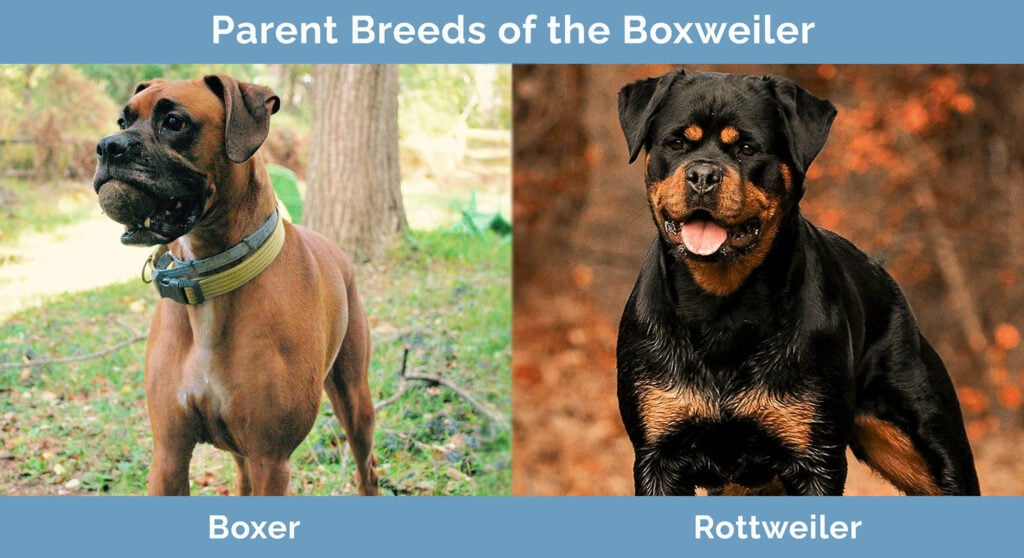
3 Little-Known Facts About the Rottweiler Boxer Mix
1. The Boxweiler tends to gain weight and needs plenty of exercise.
They are likely to overeat, which can lead to weight gain, so it’s best not to leave food out and limit the number of treats throughout the day.
2. The Boxweiler will only drool depending on which parent it takes after.
The Rottweiler tends to drool, whereas the Boxer does not. If the Boxweiler is more alike to the Boxer parent, it is less likely to drool, but if it takes after the Rottweiler parent, it could be a drooler.
3. The Boxweiler may prefer to be the only pet in the household.
If the Boxweiler is properly socialized as a puppy with other pets, they will accommodate and adapt well to other animals. However, the Boxweiler is a herding dog and will instinctively chase other animals, and therefore the household might benefit from keeping the Boxweiler as the only pet.
Temperament & Intelligence of the Boxweiler 🧠
Are These Dogs Good for Families? 🏡
The high energy of the Boxweiler requires early socialization with the family while they are puppies. If they are kept busy and not left alone for long periods, the Boxweiler will grow into a happy and well-adjusted dog that will make an excellent family pet. However, the Boxweiler would do best with older children who know how to play gently with this large dog.
Children should be taught how to approach dogs in a gentle and non-threatening manner so the dog will feel comfortable and become an eager and energetic companion.
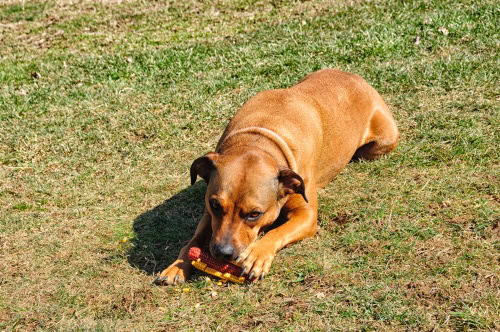
Does This Breed Get Along With Other Pets? 🐶 😽
Both Boxers and Rottweilers have a high prey drive, meaning they have a strong instinct to stalk and chase small animals. The Boxweiler more than likely will have the same instincts and therefore, will do best in a home as the only pet. However, if properly socialized as a puppy, they could adapt to living with other pets, including cats.
Things to Know When Owning a Boxweiler:
Food & Diet Requirements 🦴
The Boxweiler is a large dog and should be fed like most large breeds with high energy. They might have a predisposition to gain weight, so following a strict schedule and not leaving food out throughout the day would work best. Always follow the advice of your vet concerning your dog’s diet.
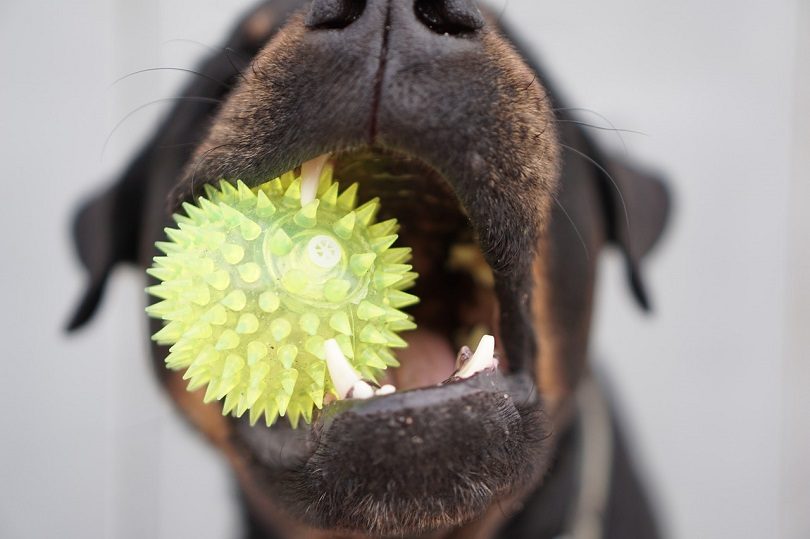
Exercise 🐕
The Boxweiler is an active, high-energy dog that requires a minimum of one long walk and several shorter walks every day. Coming from the Rottweiler and the Boxer, which are both working dogs, the Boxweiler needs to be kept busy with walks and play. If you leave them on their own too often and don’t take them out as regularly as required, behavioral issues could ensue.
These large dogs need some room to run in a yard, which makes them less suitable for apartments.
Training 🦮
These dogs are highly intelligent and eager to please, which makes training a little more straightforward since the Boxweiler will pick up training quickly and eagerly. Training should be accomplished with persistence and firmness, tempered with praise and positive reinforcement. Consistent training and lots of socialization while they are puppies are critical.
Grooming ✂️
The Boxweiler is a moderate shedder and, therefore, needs brushing several times a week (preferably every other day) to avoid mats and to remove loose hair and dead skin.
Trimming nails carefully, cleaning ears, and brushing teeth are all common grooming habits every dog needs to keep them healthy.
- Also see: Best Dog Shampoos – Reviews & Top Picks

Health and Conditions ❤️
The Boxweiler might experience any of these minor health problems and will be checked by the vet for eye issues, allergies and mange. Brushing their teeth regularly to avoid dental issues combined with frequent grooming will also help your dog maintain its health.
The Boxweiler has the potential to inherit some of these health issues from its parents. Below, we have listed a combination of the minor and serious ailments that affect Rottweilers and Boxers.
- Hypothyroidism
- Lower eyelid droop
- Cataracts
- Allergies
- Bowel disease
- Corneal erosion
- Hip dysplasia
- Bone cancer
- Heart disease
- Bloat or stomach dilatation
- Irregular heartbeat
- Spinal cord disease
- Brain tumors
Male vs Female
Most dog breeds have minor physical differences between male and female puppies. Like most species, the females tend to be a little lighter and smaller than the males.
It is thought that females tend to be less aggressive and more affectionate than males, but this subject is up for debate.
The choice of using your dog for breeding purposes will make a difference as well between the male and the female. The decision to have your dog spayed or neutered will impact your dog’s behavior and personality. Most dogs become calmer and less aggressive or less energetic after surgery.
The primary differences between all dogs, regardless of the sex, are based on how the puppies have been raised and socialized.

Final Thoughts on the Boxweiler
The Boxweiler is a beautiful, loyal, intelligent, and energetic hybrid of the Rottweiler and Boxer. A firm but kind and gentle hand is the best way to handle these large and sensitive dogs. Properly socializing them with smaller animals and children while they are puppies will give them the best possible outcome.
While there aren’t any specific breeders of these dogs, if you contact the breeders of Rottweilers and Boxers or specific rescue societies of these breeds, they might be able to assist you in finding one of these puppies. Online discussions through social media, attending dog shows, and contacting local and national dog clubs could provide you with further assistance.
If you are an admirer of the Rottweiler and the Boxer, you’re sure to appreciate the combination of these two strong and beautiful breeds into one perfect little puppy.
See also:
- Boxerman (Boxer & Doberman Pinscher Mix): Info, Pictures, Characteristics & Facts
- Boxane (Boxer & Great Dane Mix) Info, Pictures, Traits
Featured Image Credit: Malachi Jacobs, Shutterstock





